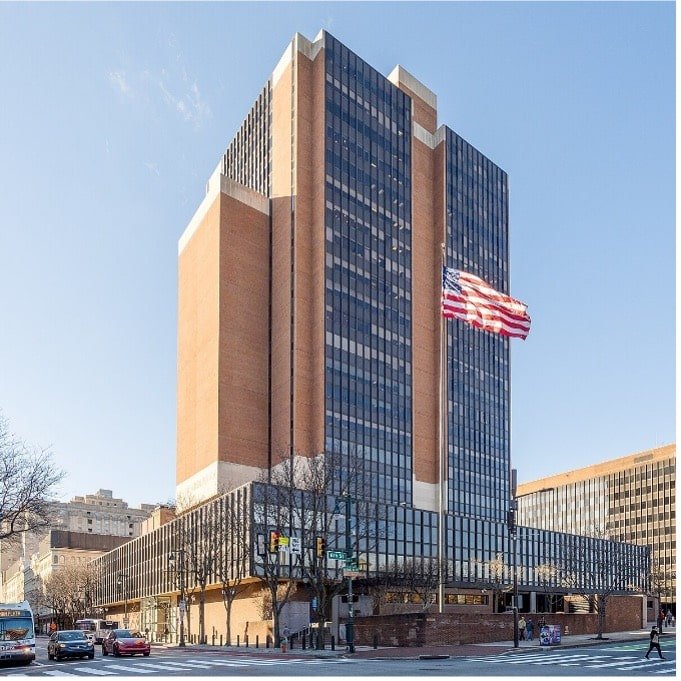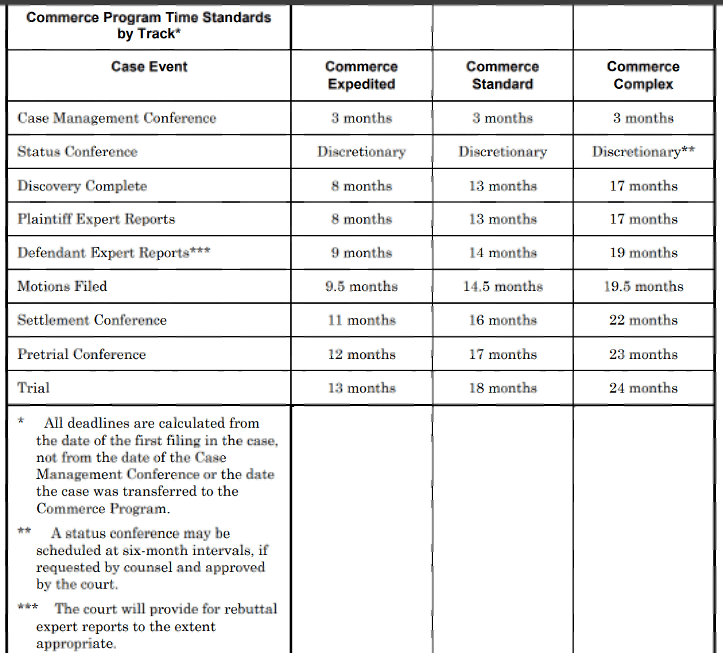Pennsylvania Commercial Litigation Lawyer
What We Do?
Recent Posts
Contact Us
When business disputes escalate, you need more than aggressive advocacy. You need counsel that pairs sophisticated commercial litigation strategies with transparent, values-driven representation. At Equal Justice Solutions, our Pennsylvania Commercial Litigation Lawyers represent clients in high-stakes business litigation, corporate litigation, and complex litigation across Pennsylvania, Delaware, and beyond.
We are well equipped to appear in Philadelphia’s Commerce Court, the Eastern District of Pennsylvania (EDPA)—one of the fastest federal trial courts in the country—and coordinate with Delaware business lawyers in the Chancery Court when fiduciary duty or shareholder matters demand it.
Whether you are a minority shareholder being frozen out, a founder facing partner misconduct, a company in a breach of contract dispute, or an investor with fiduciary claims, we strive to deliver both excellence and accountability.
Why Pennsylvania is a Strategic Venue for Business Litigation
EDPA: One of the Nation’s Fastest Federal Courts
The Eastern District of Pennsylvania (covering Philadelphia, Bucks, Montgomery, Chester, Berks, Lehigh, Northampton, Lancaster, and surrounding counties) has long been one of the nation’s quickest-moving federal courts. While recent statistics show that the median time from filing to trial has slowed to ~23 months, that figure can be misleading.

In practice, most civil cases resolve much sooner. According to court statistics and practitioner experience, the average civil matter in EDPA resolves between 4–5 months after filing—a testament to the court’s hands-on judicial case management and robust ADR culture. All cases in EDPA receive a pro bono free day of mediation.
Judges set schedules quickly (typically within 60–90 days), enforce deadlines, and frequently refer cases to magistrate judges for settlement conferences. This makes EDPA a forum where well-prepared litigants can secure early leverage, often resolving disputes before discovery costs escalate.
Takeaway: EDPA offers the best of both worlds—reasonable speed to resolution for most cases, and if trial is necessary, an efficient path compared to many other federal districts. What sets EDPA is active case management. Judges issue scheduling orders early (typically within 60–90 days of appearance), and magistrate judges are routinely assigned for settlement conferences and early resolution.
Philadelphia’s Commerce Court (The Business Court)

On the state side, Philadelphia operates a dedicated business litigation program—often called the Commerce Court. Unlike general dockets in other counties, Commerce Court cases are assigned to judges who focus exclusively on business and corporate disputes.
Cases aren’t thrown in arbitrarily. They are assigned to Commerce Court only if they meet the program’s criteria, which include:
- Disputes about corporate governance, shareholder rights, or fiduciary duties;
- Business-to-business disputes involving contracts, UCC transactions, sales of goods or services, commercial real estate, or franchising;
- Trade secret and non-compete litigation;
- Business torts like unfair competition or interference with contractual relations;
- Intellectual property and securities matters;
- Derivative and business-related class actions;
- Commercial insurance coverage disputes.
Personal injury, consumer claims, employment cases, and domestic relations disputes do not qualify.
Cases assigned to Commerce Court are placed on one of three tailored tracks: Expedited (≈12 months to trial), Standard (≈18 months), or Complex (≈24 months). Judges also rely on Judges Pro Tempore (JPTs)—experienced practitioners who volunteer to mediate settlements—helping move cases toward early resolution. Below is a chart that shows key deadlines in the case from date of filing:

Takeaway: If your case belongs in Commerce Court, you benefit from specialized judges, predictable scheduling, and a forum designed for sophisticated commercial disputes.
Allegheny County’s Commerce & Complex Litigation Center
On the western side of Pennsylvania, Allegheny County operates a dedicated Commerce and Complex Litigation Center. This program is designed for high-stakes commercial disputes and legally intensive matters that require active case management.
Cases can be assigned to the Center by court order—either at a party’s request or at the court’s discretion—and are overseen by judges with specific expertise in business and complex litigation. The assigned judge manages all aspects of the case, including discovery and motion practice, with the goal of ensuring efficiency, fairness, and timely resolution.
Types of cases typically assigned include:
- Disputes over internal affairs, governance, dissolution, or shareholder rights in corporations, LLCs, and partnerships.
- Business-to-business disputes involving contracts, joint ventures, or transactions.
- Complex cases with multiple parties, novel legal issues, or significant amounts in controversy (such as mass torts, environmental actions, or large-scale consumer cases).
Routine matters—like landlord-tenant disputes or mortgage foreclosures—are excluded unless extraordinary circumstances apply.
The Center is notable because it provides Pittsburgh-area businesses a specialized forum similar to Philadelphia’s Commerce Court. For companies operating statewide, this means Pennsylvania offers two robust venues for complex commercial litigation, each with dedicated judges and tailored case management procedures.
Mallory v. Norfolk Southern: Opening the Door to Cross-Border Disputes
In Mallory v. Norfolk Southern Railway Co. (2023), the U.S. Supreme Court upheld Pennsylvania’s consent-by-registration statute, holding that foreign corporations registered to do business here may be subject to general jurisdiction.
This ruling makes Pennsylvania an attractive venue for international and cross-border disputes, particularly when defendants are foreign corporations with U.S. business registration in Pennsylvania. While other defenses (forum selection, arbitration, dormant Commerce Clause) may still apply, Mallory gives plaintiffs a powerful jurisdictional lever.
Rule 2179 Venue Analysis: A Decisive Factor in Strategy
Under Pa. R.C.P. 2179, venue in a personal action against a corporation lies in any county where:
- The corporation’s registered office or principal place of business is located;
- The corporation regularly conducts business;
- The cause of action arose;
- A transaction or occurrence giving rise to the cause of action occurred; or
- Property related to the dispute is located (if equitable relief is sought).
Partnerships have a similar provision. Insurance actions have even broader options, including where the insured resides for certain policies.
The phrase “regularly conducts business” is broad but not unlimited. For example, in Wyszynski v. Greenwood Gaming & Ent., Inc. (2017), the Superior Court held that advertising alone was not enough. But where defendants actually conduct core business activities—even if only a small percentage of their total work—that can be sufficient.
Example: Smart Pleading in Donaghue & Bradley v. Zampana–Barry
Delaware County (DelCo) has a reputation for an insular bar, making certain cases—like legal malpractice against a DelCo lawyer—difficult for plaintiffs. In Donaghue & Bradley v. Zampana–Barry (Pa. Super. 2006), a client alleged her DelCo attorneys negligently mishandled her K-Mart personal injury case.
Defense strategy
The law firm argued that venue belonged in Delaware County, where 95–98% of its business was conducted.
Plaintiff’s counter
Smart pleading established venue in Philadelphia County, showing that the firm regularly conducted business in Philadelphia by representing clients there—even though it was only 3–5% of its practice.
Superior Court ruling
The Superior Court affirmed Philadelphia venue, holding that representing clients in Philadelphia courts was a direct act in furtherance of the firm’s business purpose (unlike incidental activities such as advertising or referrals). Even a small percentage of cases—3–5%—was enough to constitute “regular” business.
Aftermath
Recognizing the stakes, the defendants appealed to the Pennsylvania Supreme Court. When the Court declined to hear the case, public records show the matter soon settled.
Lesson for clients:
This case underscores just how decisive venue strategy can be. The plaintiff’s ability to secure Philadelphia venue dramatically changed the litigation posture—so much so that the defendants pursued Supreme Court review, and the case resolved shortly after review was denied.
For plaintiffs, it shows the power of creative, fact-driven pleading. For defendants, it’s a cautionary tale: challenge venue early and aggressively, because the wrong forum can tilt the balance of power before the first deposition is even taken.
At Equal Justice Solutions, venue analysis is not boilerplate—it’s one of the first strategic levers we pull.
Pennsylvania’s Higher Pleading Standard: Defense Advantage and Plaintiff Opportunity

Another major difference between Pennsylvania and federal courts is the pleading standard.
- Federal courts apply “notice pleading.” A plaintiff only needs to state enough facts to make their claim “plausible.”
- Pennsylvania courts require fact pleading. Under Pa. R.C.P. 1019, plaintiffs must allege all material facts with specificity—not just conclusions. Fraud claims must be pled with particularity, and if documents are central, they must be attached to the complaint or explained.
Case Example: Golden Gate National Senior Care
In Commonwealth v. Golden Gate National Senior Care LLC (Pa. 2018), the Attorney General accused a nursing home chain of deceptive marketing—claiming it promised a level of care and staffing that wasn’t delivered.
- The trial court dismissed the complaint for vagueness.
- The Pennsylvania Supreme Court reinstated it, but emphasized that it survived only because the Commonwealth pled specifics: the exact marketing statements that were misleading, concrete examples of understaffing, and factual links between the ads and patient harm.
The Court made clear: broad generalizations are not enough. Even when allegations describe a “scheme,” plaintiffs must provide detailed facts—the who, what, when, where, and how.
Leveraging the Standard for Plaintiffs
Pennsylvania’s high bar can be a shield for defendants, but smart plaintiffs can still meet it by using the tools Pennsylvania law provides. At Equal Justice Solutions, we combine statutory inspection rights with procedural mechanisms to build a factually fortified complaint that survives preliminary objections.
1. Books and Records Actions (15 Pa.C.S. § 1508).
Shareholders have the right to demand inspection of corporate books, records, and minutes for any proper purpose. If denied, they can petition the court to compel inspection. This allows minority shareholders to gather financial records and board materials before filing a complaint, ensuring the factual detail necessary to meet the high pleading bar.
Note: While the case law is not as developed as Delaware—with its famous DGCL 220 books and records provision—it does appear that Pennsylvania courts are somewhat looser on standing requirements, which are strictly enforced in Delaware.
2. Writ of Summons (Pa. R. Civ. P. 1007(a)).
A plaintiff can initiate a lawsuit by filing a writ of summons—tolling the statute of limitations without filing the complaint immediately. This buys time to investigate and gather facts before drafting allegations.
3. Pre-Complaint Discovery (Pa. R. Civ. P. 4003.8).
Rule 4003.8 permits pre-complaint discovery when information is “material and necessary” to preparing the complaint. Courts balance the plaintiff’s need against the burden on defendants.
Example: In a minority shareholder freeze-out, a plaintiff might:
- File a writ of summons to preserve the claim,
- Use § 1508 to demand access to shareholder and board records,
- Seek limited discovery under Rule 4003.8 to secure key financial data,
- Then draft a detailed complaint that satisfies Pennsylvania’s fact-pleading requirement and withstands objections.
Strategic advantage: While many firms rush to file generic complaints and hope to survive objections, we build the record first—then file a fact-rich, bulletproof complaint. At the same time, we leverage the threat of a detailed, public filing to push for settlement.
Bottom line: Pennsylvania’s higher pleading standard isn’t just an obstacle. It’s a strategic battleground. For defendants, it offers early dismissal opportunities. For plaintiffs, it creates leverage to compel disclosure, frame claims precisely, and pressure settlement before discovery costs spiral.
Our Unique Offer: The 15–25 Hour Legal Power Pack
Most law firms ask for a large retainer with no guarantees. We believe you deserve clarity and control before making long-term litigation decisions.
15–25 Hour Legal Power Pack — $695/hour — 100% Refundable
Available by request. Ask about the Power Pack™ during your consultation.
Here’s how it works:
- You fund 15–25 hours of our time (depending on complexity).
- The funds are held in a separate client trust account.
- If you are not satisfied with our assessment, you withdraw your funds—no questions asked.
What You Receive
Within 21 business days, we deliver a Transparent Fee Assessment that includes:
- A written legal roadmap tailored to your dispute
- Risk analysis and preliminary findings
- Estimated costs, timelines, and exposure
- A proposed litigation strategy
- Evaluation of non-litigation risks (media relations, regulatory issues, stakeholder engagement)
- Assessment of alternative fee options, including potential contingency
Our Boldest Guarantee
If you read our strategy memo and think we’re off base—you fire us, and we don’t charge you a dime.
No surprise billing. No inflated rates. No fear. Just precision lawyering.
(Context: Delaware Chancery Court has approved fee rates exceeding $900/hour as reasonable in complex cases, see Fortis Advisors LLC v. Johnson & Johnson, C.A. No. 2020-0881-LWW (Del. Ch. 2024). Our $695/hour Power Pack provides elite litigation strategy at a fraction of those rates.)
Types of Cases We Litigate
- Breach of Contract (UCC & common law, including PA’s “intends to be legally bound” statute at 33 P.S. § 6).
- Breach of Fiduciary Duty against directors, officers, partners, and advisors.
- Shareholder Oppression & Minority Rights under the PA Business Corporation Law (15 Pa.C.S. § 1981).
- Complex Litigation involving multiple jurisdictions, cross-border issues, or high-dollar stakes.
- Trade Secrets & Non-Competes under Pennsylvania’s Uniform Trade Secrets Act.
- Business Torts including fraud, conspiracy, and tortious interference.
Small Business Legal Support Program
We believe elite counsel shouldn’t be out of reach for principled businesses with limited means. That’s why we reserve a portion of our docket for mission-aligned enterprises through our Small Business Legal Support Program, offering sliding-scale rates up to 50% off.
Eligibility often includes:
- Businesses with less than $7.5M in annual revenue
- Nonprofits and social enterprises
- Companies without institutional investors
- Clients with compelling hardship or community benefit
Built on Mission, Driven by Justice

Equal Justice Solutions is a faith-based, public benefit law firm.
- We practice law as a calling, not just a business.
- We fight for the underdog when the law and conscience are on their side.
- Your legal bills help support our pro bono programs for the poor, vulnerable, and marginalized.
Our guiding principle comes from Micah 6:8: “Do justice, love mercy, and walk humbly.”
Clients need not share our beliefs, but they benefit from our uncompromising integrity, relentless advocacy, and values-driven approach.
Who We Represent
- Minority shareholders asserting inspection or derivative rights
- Founders pushed out by dishonest partners
- Companies in breach of contract, trade secret, or vendor disputes
- Investors facing misappropriation or fiduciary duty breaches
- Businesses suing insurance companies for coverage denials
- Companies evaluating claims against accountants, attorneys, or advisors
We litigate in state and federal courts, arbitrate under AAA and JAMS, and practice in Delaware, Pennsylvania, New Jersey, New York and federal courts nationwide.
Common Questions About Business Litigation
How long will my case take in Pennsylvania?
In EDPA, median filing-to-trial is ~13–24 months. In Philadelphia Commerce Court, timelines vary by track: 12, 18, or 24 months.
What remedies are available in breach of contract?
Pennsylvania allows compensatory damages, specific performance, restitution, and in some cases attorney’s fees. Unique statutes like 33 P.S. § 6 can make certain promises enforceable even without consideration.
What rights do minority shareholders have?
Under 15 Pa.C.S. § 1508, shareholders can demand access to books and records before even filing suit. Under 15 Pa.C.S. § 1981, courts may dissolve corporations for oppressive conduct or order buyouts, injunctions, or custodianships.
Is Pennsylvania really good for cross-border disputes after Mallory?
Yes—foreign corporations registered in PA may be subject to general jurisdiction. This makes PA a strong forum for cross-border disputes, though defendants may still raise forum-selection or arbitration defenses.
Can you handle Delaware Chancery matters?
Yes. Our hourly rates include Delaware Chancery representation, where rates above $900/hour have been deemed reasonable. Our Power Pack™ makes that expertise accessible and transparent.
Schedule a Confidential Consultation
If you’re looking for a Pennsylvania Commercial Litigation Lawyer—for business litigation, corporate litigation, complex litigation, or a breach of contract or fiduciary duty matter—you deserve counsel that combines precision, transparency, and values.
Ask about our 15–25 Hour Legal Power Pack during your consultation.
- Conshohocken, PA | Wilmington, DE
- 267-388-1852
- info@equaljusticesolutions.org
Equal Justice Solutions Business Litigation with Integrity. Strategy You Can Trust.Standing up for entrepreneurs, partners, and investors—without compromising values.
